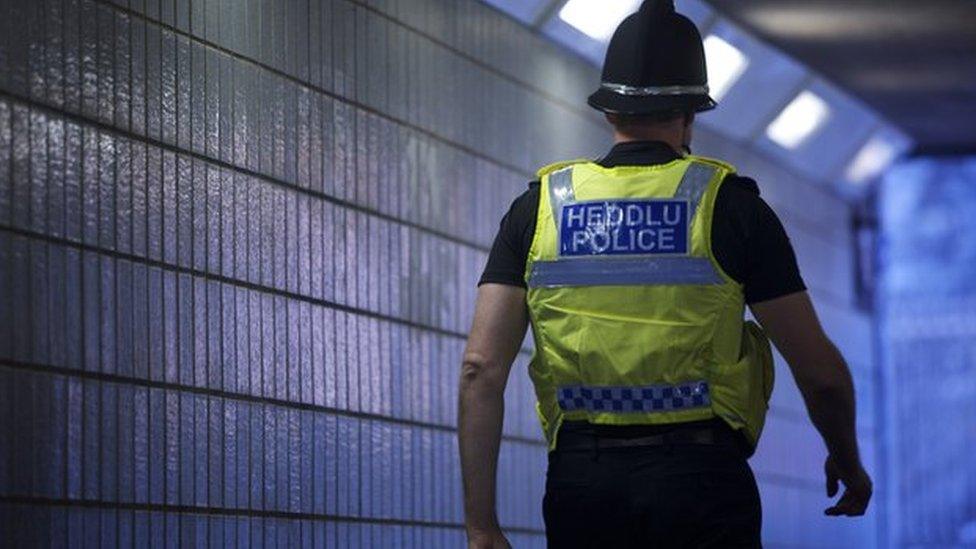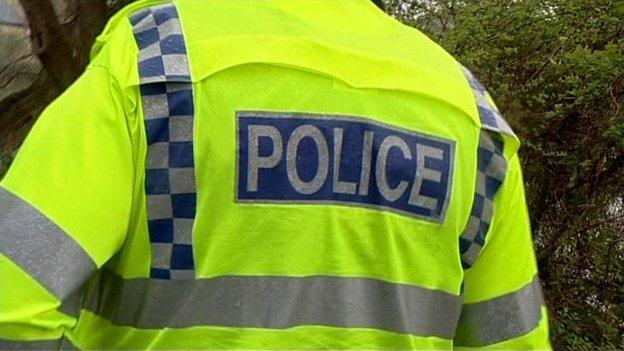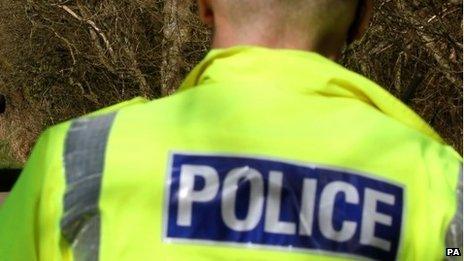Welsh police forces 'not ready' for honour violence
- Published

Wales' four police forces are not in a position to give victims of honour-based violence, forced marriage and female genital mutilation the best service, a report has found.
The study, by HM Inspectorate of Constabulary, looked at forces across England and Wales.
Dyfed-Powys Police was not deemed prepared in any category.
Gwent, North Wales and South Wales Police were classed as prepared in some areas, but not yet prepared overall.
Only Derbyshire, Northumbria and West Midlands Police were considered to be fully prepared.
Four categories were looked at; leadership, awareness and understanding, protection and enforcement and prevention.
Gwent Police was categorised as prepared in the first two areas whereas North Wales Police and South Wales Police were prepared in awareness and understanding and protection.
Of the 43 forces, only Dyfed-Powys Police, Staffordshire and Thames Valley were said to be unprepared across the board.
A spokesman for Dyfed-Powys Police said: "We acknowledge that honour-based based violence can be hidden within communities... the force has taken a number of steps to improve its understanding and response."
Det Ch Insp David Hough from South Wales Police said the force is "committed to to play its role in eradicating all forms of honour-based abuse... we shall now consider the HMIC's report and what implications, if any, it may have."
A spokesman for Thames Valley Police said the force had taken "significant steps to improve our preparedness to respond", which included further training for frontline staff.
Honour-based violence refers to practices used predominantly to control the behaviour of women and girls within families or social groups to protect supposed cultural and religious beliefs or values.

Overall, HMIC found there were pockets of good practice, but a lot of improvements were needed.
HM Inspector of Constabulary, Wendy Williams, said: "Although initial responses by the police are good, only a small number of forces are well-prepared for the complexity that honour-based violence cases can pose.
"It is clear that the police service has some way to go before the public can be confident that honour-based violence is properly understood by the police and that potential and actual victims are adequately and effectively protected."
Recommendations include the Home Office establishing a framework to monitor progress made following this report and developing an approach to how data is recorded on allegations of FGM, honour-based violence and forced marriage.
Chief constables have been advised to raise awareness of these issues with officers and staff, as well as putting systems in place to "red flag" these crimes at an early stage so risk to victims can be assessed and managed.
- Published8 December 2015
- Published9 July 2015

- Published6 February 2014

- Published20 June 2011
